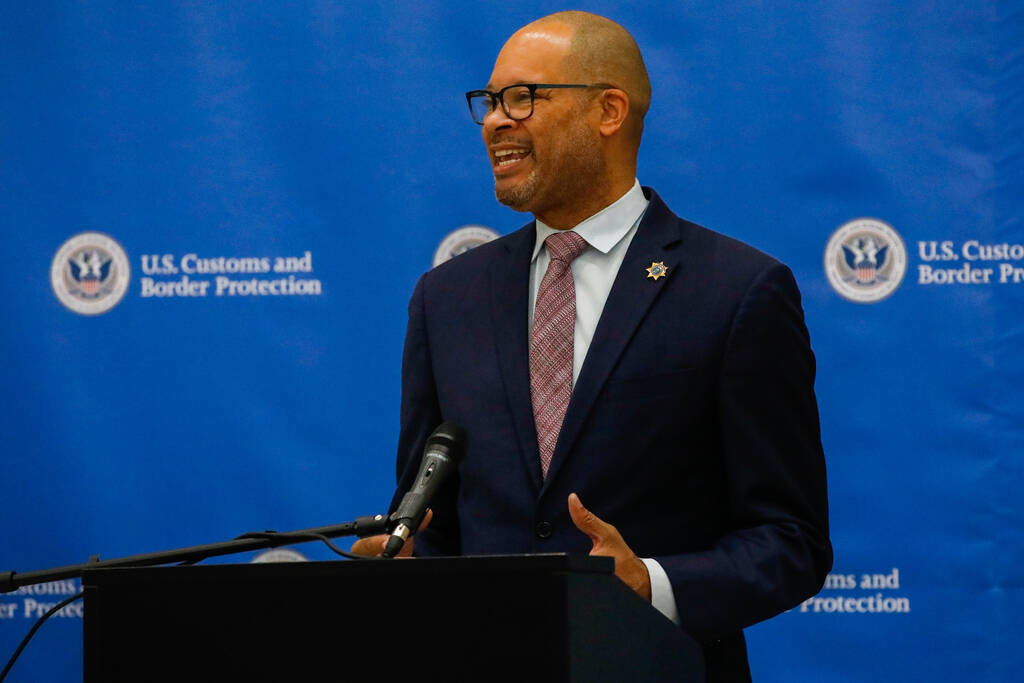Nevada AG shares what immigrants should know when stopped by police
Nevada Attorney General Aaron Ford has promised to defend the rights of all Nevada residents — including undocumented immigrants — in the face of a threatened crackdown by President-elect Donald Trump.
The state’s top law enforcement officer followed up on that promise Wednesday by publishing official guides outlining the rights of immigrants and employers when interacting with police or immigration officers.
The two “Know Your Rights” documents, including one version in Spanish, was posted on the Office of the Attorney General’s website.
“One of the most important responsibilities of the Attorney General of Nevada is to protect the rights of every resident of this state,” the office wrote. “No matter who is President, every resident of Nevada has basic rights that protect you when you have contact with law enforcement, regardless of your citizenship or immigration status — including undocumented immigrants.”
His office’s guidance comes after Ford, a Democrat, said he will fight to ensure President-elect Donald Trump oversees an administration that does not vilify communities.
Ford said in a statement this week that his office will be a “bulwark against any effort to impose unconstitutional mandates; override our system of checks and balances; or intrude upon the rights of any Nevada resident.”
His efforts have been met with pushback on the other side of the aisle. For instance, Chuck Muth, a conservative blogger, on X called Ford’s promise “woke” and claimed Ford was using his public office for partisan purposes in advance of an expected run against Republican Gov. Joe Lombardo in 2026.
Rights of individuals
Here is what immigrants should know about their rights when stopped by a police or immigration officer, according to the office of the attorney general.
If you are stopped by a Nevada state peace officer, you must tell them your name if they ask. Beyond that, you have the right to remain silent and are not required to answer further questions. You can refuse to consent to any search, though the officer may pat you down if they believe you are carrying a weapon.
If you’re stopped by an officer while in your car, they can search your car without consent if an officer believes the car contains evidence of a crime. If you are in your car when stopped and they ask to see your driver’s license, you must provide it to them to prove you are lawfully operating your car.
You can request an interpreter if the officer doesn’t speak your language, and you can tell them you choose to remain silent and will not speak to them without an attorney present, according to the office.
If an immigration agent asks to see your immigration papers if you are not a U.S. citizen, you must show them.
You do not have to tell a police officer or immigration agent information about your immigration history, including your place of birth.
If you are not under arrest, you also may record your interactions with police or immigration officers.
If police officers or immigration agents come to your home, you have the right to not let them in without an arrest or search warrant signed by a judge, and you can ask to see that warrant before letting them in. A warrant of deportation does not allow officers to enter your home without your approval.
You can ask what agency the officers represent and specifically if they are immigration agents or from U.S. Immigration and Customs Enforcement.
If you are arrested, try not to resist, the office of the attorney general wrote. You have the right to request an interpreter and the right to speak with an attorney. You can also ask to call a family member or a friend if you have children with you, or to alert your employer.
Federal law grants ICE agents the discretion to choose not to detain any immigrant who is not subject to a mandatory detention. You can inform the officer if you are the primary caregiver of a child who is a U.S. citizen or a legal resident.
You also have the right to consult an immigration attorney before making any decisions about your case or signing any documents.
Guidance for businesses
Ford and his office also provided guidance for businesses. The office said businesses can find a qualified immigration lawyer before an ICE visit. Businesses can also prepare for I-9 audits, which is when ICE comes to check if a business has followed the rules for Form I-9 that confirms a worker’s identity and authorization to work in the U.S.
Businesses can request to see the subpoena for an I-9 audit or investigation before turning over documents. The office encouraged businesses to stay calm when interacting with ICE agents during the visit, and to note the names and badge numbers of the agents, as well as to note anything taken from the premises or any interactions with employees.
Businesses are not obligated to bring ICE agents to any employees or tell ICE agents if a certain employee is at the workplace that day.
Contact Jessica Hill at jehill@reviewjournal.com. Follow @jess_hillyeah on X.






















